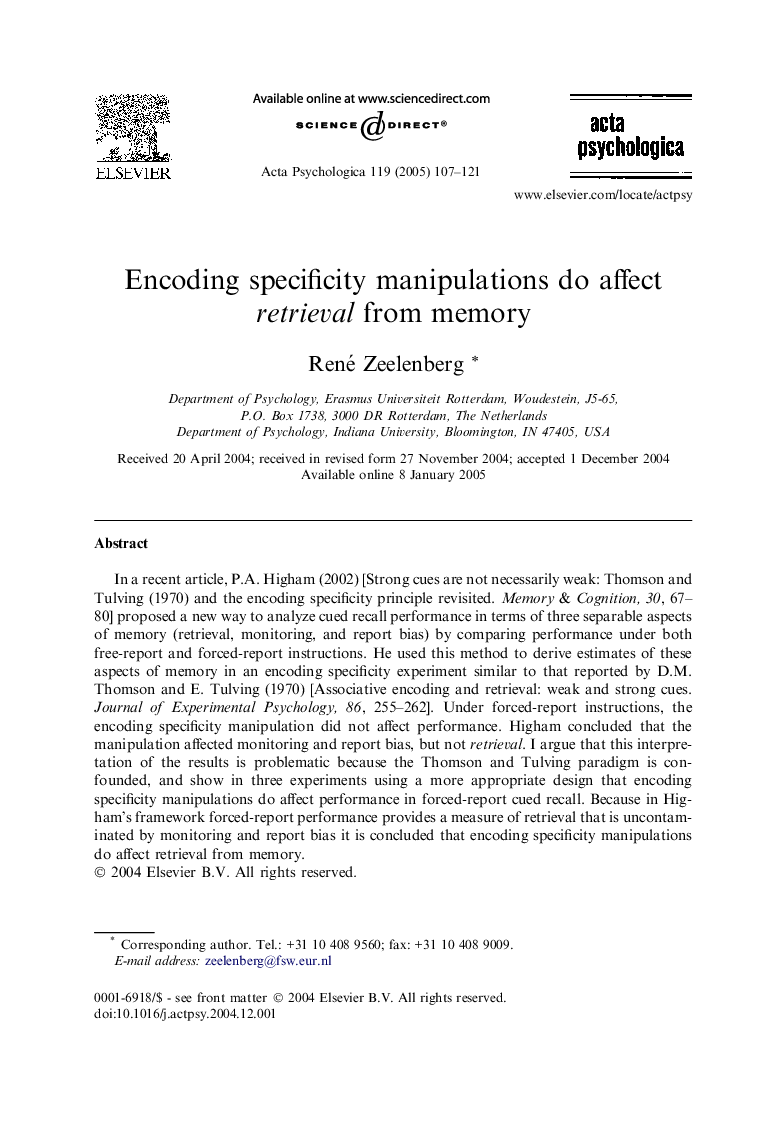| کد مقاله | کد نشریه | سال انتشار | مقاله انگلیسی | نسخه تمام متن |
|---|---|---|---|---|
| 10453902 | 920315 | 2005 | 15 صفحه PDF | دانلود رایگان |
عنوان انگلیسی مقاله ISI
Encoding specificity manipulations do affect retrieval from memory
دانلود مقاله + سفارش ترجمه
دانلود مقاله ISI انگلیسی
رایگان برای ایرانیان
کلمات کلیدی
موضوعات مرتبط
علوم زیستی و بیوفناوری
علم عصب شناسی
علوم اعصاب شناختی
پیش نمایش صفحه اول مقاله

چکیده انگلیسی
In a recent article, P.A. Higham (2002) [Strong cues are not necessarily weak: Thomson and Tulving (1970) and the encoding specificity principle revisited. Memory &Cognition, 30, 67-80] proposed a new way to analyze cued recall performance in terms of three separable aspects of memory (retrieval, monitoring, and report bias) by comparing performance under both free-report and forced-report instructions. He used this method to derive estimates of these aspects of memory in an encoding specificity experiment similar to that reported by D.M. Thomson and E. Tulving (1970) [Associative encoding and retrieval: weak and strong cues. Journal of Experimental Psychology, 86, 255-262]. Under forced-report instructions, the encoding specificity manipulation did not affect performance. Higham concluded that the manipulation affected monitoring and report bias, but not retrieval. I argue that this interpretation of the results is problematic because the Thomson and Tulving paradigm is confounded, and show in three experiments using a more appropriate design that encoding specificity manipulations do affect performance in forced-report cued recall. Because in Higham's framework forced-report performance provides a measure of retrieval that is uncontaminated by monitoring and report bias it is concluded that encoding specificity manipulations do affect retrieval from memory.
ناشر
Database: Elsevier - ScienceDirect (ساینس دایرکت)
Journal: Acta Psychologica - Volume 119, Issue 1, May 2005, Pages 107-121
Journal: Acta Psychologica - Volume 119, Issue 1, May 2005, Pages 107-121
نویسندگان
René Zeelenberg,